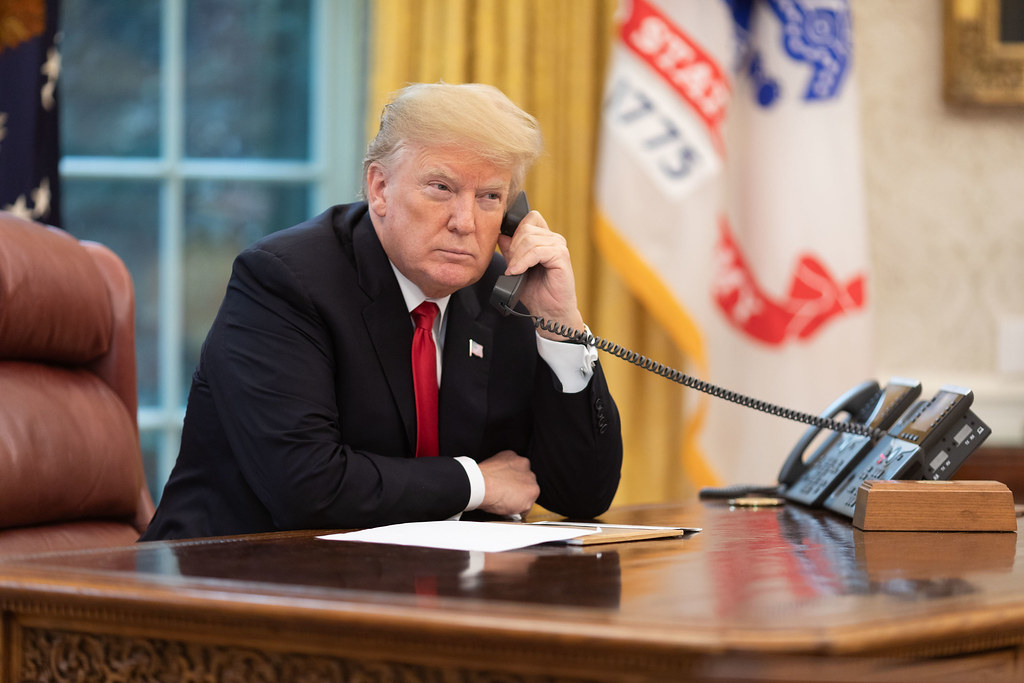Key Takeaways:
- Trump asked aloud if Americans might prefer a dictator during an Oval Office press conference.
- He framed his decision to deploy troops as practical common sense.
- Activist Cameron Kasky likened Trump’s tactic to playful flirting that tests reactions.
- This “dictatorship gambit” lets listeners choose whether to take the idea seriously.
Inside Trump’s Latest Dictatorship Gambit
On Monday, President Trump stunned reporters when he asked, “Maybe we’d like a dictator?” He spoke from the Oval Office. Then he added that many people praise his common sense. He pointed to unrest in U.S. cities and defended sending in troops. Yet critics shouted that he tried to take over the republic.
Trump never fully called himself a dictator. However, his words edged close to that line. He said, “I’m a man with great common sense, and I’m a smart person.” Then he blamed those who label him a tyrant. “These people are sick,” he said. In just a few sentences, he floated the idea of absolute power.
How the Dictatorship Gambit Plays Out
A new episode of The Bulwark’s podcast FYPod dug into this move. Democratic activist Cameron Kasky appeared to explain Trump’s tactic. He co-founded the gun safety group Never Again MSD. Kasky said Trump uses humor to test how far he can push a point. In his view, that approach matches the “dictatorship gambit” perfectly.
First, Trump makes a shocking comment. Then, he treats it as a light joke. This gives people a chance to laugh it off. According to Kasky, it mirrors how he flirts with someone he likes. If the target isn’t interested, they can pretend it was all in fun. Yet if they play along, he knows they welcome more bold talk.
Next, Trump watches who reacts in which way. Supporters who cheer the dictator idea show they back stronger power. Others who laugh or scoff get to stay on neutral ground. This two-step approach helps him rally fans while avoiding full blame. In effect, the “dictatorship gambit” reveals who will follow him to the edge.
Why the Dictatorship Gambit Matters
This tactic matters because it blurs real intent. By making a joke, Trump sidesteps outright responsibility. He can later claim he never meant it seriously. Moreover, the gambit plants wild ideas into public debate. Some may dismiss it at first. Yet repeated jabs can shift the window of acceptable talk.
For example, if a leader teases about taking over power, people start to discuss that choice. Over time, it may seem more normal. Therefore, the “dictatorship gambit” could reshape how we talk about democracy. It raises questions about where limits lie for public speech. Likewise, it tests the strength of political norms.
Furthermore, this tactic can energize his core supporters. They see bold statements as proof of strength. When Trump flirts with dictatorship, his base hears confidence, not a threat. That reaction feeds on itself. Each time he crosses a line, those fans applaud, encouraging him to push further.
What to Watch Next
Keep an eye on how Trump and his team handle fallout. If he doubles down, it confirms that the “dictatorship gambit” is part of his playbook. On the other hand, if he shrugs it off, he may try a new tactic. Also, watch which polls show growing support or worry about this talk.
Meanwhile, listen to more voices on the FYPod episode. Kasky and host Charlie Sykes unpack how humor and power mix. They explain why we should care when any leader flirts with absolute rule. Overall, this debate matters for every citizen who values democracy.
Frequently Asked Questions
What exactly does “dictatorship gambit” mean?
It describes a tactic where someone flirts with dictatorial ideas as a joke. The speaker tests who takes it seriously and who laughs it off. This approach can reveal true supporters and soften the ground for more extreme talk.
Has any past president used a “dictatorship gambit”?
No recent U.S. president has openly teased about dictatorship in this way. However, other global leaders have used humor or bold statements to gauge public reaction before shifting policies. Trump’s tactic stands out for how directly it flirts with absolute power.
Why compare the gambit to flirting?
Flirting jokes allow people to retreat without embarrassment. If the listener isn’t interested, they can laugh it off. If they respond positively, the flirter knows they have permission to get closer. Trump’s tactic works similarly: he can back away or lean in based on reaction.
How can voters respond to this strategy?
Voters can stay alert to bold statements and demand clear intent. Call out jokes that cross democratic lines. Support open debate about limits on power. By refusing to simply laugh off extreme ideas, citizens can hold leaders to account.
